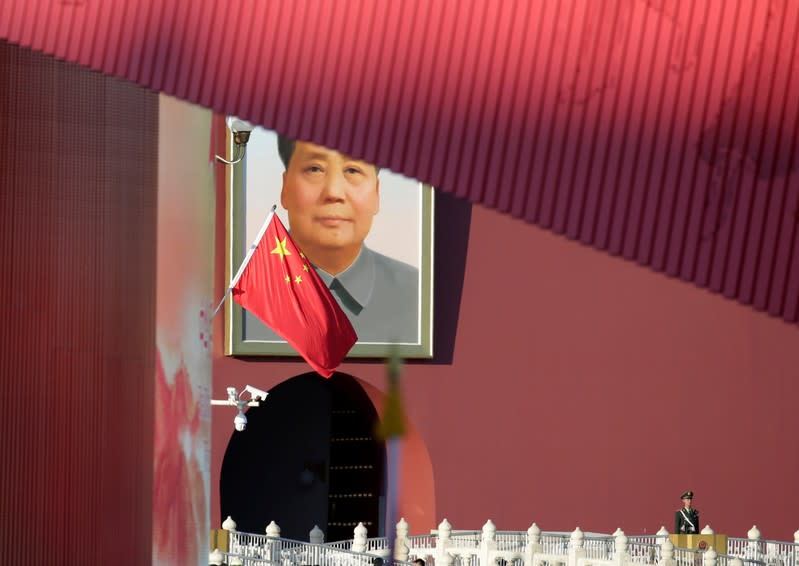China says outspoken Australian lawmakers should repent

By Lidia Kelly
MELBOURNE (Reuters) - Two Australian lawmakers who were denied entry to China for a study tour because of their outspoken criticism of Beijing must "repent and redress their mistakes" if they want to visit the country, China's embassy in Canberra said.
Andrew Hastie and James Paterson were to visit China next month on a trip organised by China Matters think-tank, but they said they had been barred because of their "frankness about the Chinese Communist Party".
The two conservative members of parliament have been increasingly critical of the Chinese regime, its attempts to exert influence in Australia and of Beijing's handling of pro-democracy protests in Hong Kong.
In August, China condemned Hastie for an opinion piece in Australian newspapers in which he warned about China's influence, comparing Beijing's rise to the threat from Nazi Germany.
Hastie is not a minister but is an influential member of Australia's ruling Liberal-National coalition, and is the chair of parliament's intelligence and security committee, which is privy to classified information.
Late on Saturday, the Chinese embassy in Canberra issued a statement saying Beijing will remain open to dialogue as long as "the people concerned genuinely repent and redress their mistakes".
"The Chinese people do not welcome those who make unwarranted attacks, wantonly exert pressure on China ... " the embassy's spokesperson said in the statement. "China will never yield to colonization of ideas and values."
Hastie said no apologies will be coming.
"Let me be very clear, we will not repent for standing up for Australian sovereignty, our values, our interests, and for those who cannot speak for themselves," he said in televised remarks.
Australia's overall relations with China, its most important trading partner, have deteriorated in recent years amid accusations that China is meddling in domestic affairs. Canberra also fears China is seeking undue influence in the Pacific region.
China Matters, an Australia-based think-tank which describes itself as working to advance "sound" China policy, said the goal of the study tours organised for politicians and business executives is to "facilitate informal discussion with citizens of the People's Republic of China (PRC)".
(Reporting by Lidia Kelly; Editing by Kim Coghill and Daniel Wallis)


